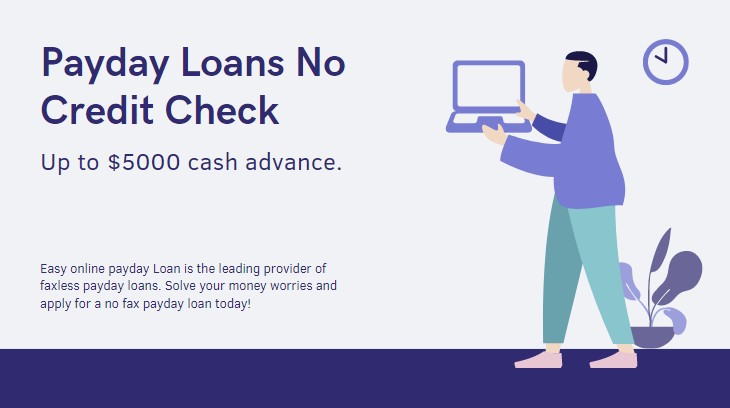Easy Loan No Credit Check Instant Approval

The allure of quick cash without the hassle of credit checks is increasingly prominent in the lending landscape, with numerous companies advertising "easy loan, no credit check, instant approval" services. These offers, often targeting individuals with limited or damaged credit histories, promise a lifeline during financial emergencies. However, experts caution that these loans often come with significant risks, demanding careful consideration before borrowers sign on the dotted line.
This article examines the proliferation of these types of loans, exploring their operational mechanisms, potential benefits, associated risks, and the regulatory environment surrounding them. It also considers the impact on consumers, particularly those most vulnerable to predatory lending practices.
The Appeal of "Easy" Loans
These loans typically operate online or through storefront lenders, offering small amounts of money—often ranging from a few hundred to a few thousand dollars—with short repayment terms. The absence of a traditional credit check is a key selling point, attracting individuals who have been denied loans by conventional banks or credit unions.
The "instant approval" claim is another major draw, promising borrowers immediate access to funds, sometimes within minutes of applying. This speed and convenience can be especially appealing during urgent situations, such as unexpected medical bills or car repairs.
How They Work
Instead of relying on credit scores, these lenders often assess borrowers based on factors like income, employment history, and bank account activity. Payday loans and title loans are common examples of this type of lending.
Payday loans are short-term, high-interest loans typically due on the borrower's next payday. Title loans, on the other hand, require borrowers to put up their vehicle as collateral.
The Hidden Costs
While the promise of quick cash may seem attractive, these loans frequently carry exorbitant interest rates and fees. Annual Percentage Rates (APRs) can soar into the triple digits, making them significantly more expensive than traditional loans or credit cards.
According to the Consumer Financial Protection Bureau (CFPB), borrowers who take out payday loans often find themselves trapped in a cycle of debt. They are forced to repeatedly borrow to cover the original loan amount and accrued interest.
Regulatory Landscape and Consumer Protection
The regulation of "easy loan" products varies significantly by state. Some states have strict laws limiting interest rates and fees, while others have more lenient regulations, or none at all.
The CFPB has been actively working to protect consumers from predatory lending practices, including those associated with payday and title loans. However, legal challenges and industry lobbying efforts have often hampered these efforts.
Potential Impact on Consumers
For individuals who lack access to traditional credit options, these loans can provide a temporary solution to financial challenges. However, the high cost of borrowing can quickly escalate debt and lead to long-term financial hardship.
Defaulting on these loans can result in bank overdraft fees, collection calls, and even lawsuits. In the case of title loans, borrowers risk losing their vehicles, further jeopardizing their financial stability.
Alternatives to "Easy" Loans
Financial experts recommend exploring alternative options before resorting to high-cost loans. These alternatives include seeking assistance from community organizations, negotiating payment plans with creditors, or applying for a personal loan or credit card from a bank or credit union.
Building an emergency fund can also provide a financial cushion to handle unexpected expenses without resorting to borrowing. Credit counseling services can provide guidance on budgeting, debt management, and improving credit scores.
A Word of Caution
The phrase "easy loan, no credit check, instant approval" should serve as a red flag, signaling the potential for high costs and significant risks. Borrowers should carefully read the terms and conditions of any loan agreement before signing, paying close attention to the interest rate, fees, and repayment schedule.
It is crucial to assess one's ability to repay the loan on time to avoid falling into a cycle of debt. Seeking advice from a financial advisor or credit counselor can provide valuable insights and help borrowers make informed decisions.
While the convenience and accessibility of these loans may be tempting, consumers must weigh the benefits against the potential consequences. A thorough understanding of the risks involved is essential for protecting one's financial well-being.
















